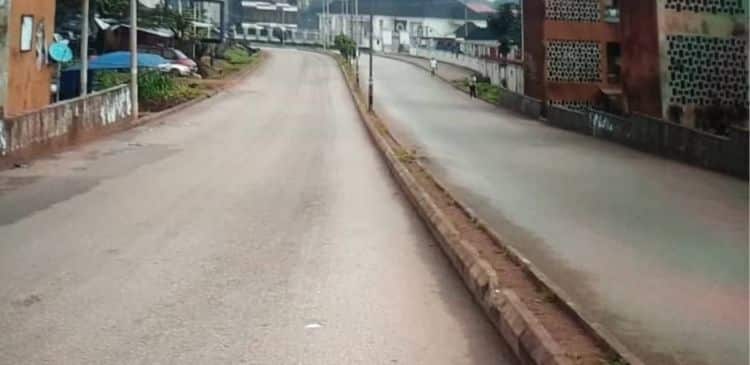There is an emerging panic in the southeast that continuous compliance with the weekly sit-at-home order declared in Igboland by the Indigenous People of Biafra (IPOB) on Mondays may cripple the economy of the region. Accordingly, some governors in the southeast had resorted to confronting and threatening big businesses such as banks, supermarkets, big eateries in the state, which shut down or do not open for activities on Monday. The governors, personally, move to the streets to force businesses to open on Mondays, and attempt to lure the people to the streets.
The intervention of the governors is being reinforced by a group, the Concerned Igbo Stakeholders Forum. The group has raised alarm over the economic and social consequences of the continuous compliance with the weekly sit-at-mass action on Monday’s by southeast residents in the zone.
Leader of the Concerned Igbo Stakeholders Forum, Chukwuma Okenwa, at a Press conference in Enugu, advocated an inclusive approach to resolving the crisis within the region and rebuilding the people’s confidence in their leaders. Chukwuma Okenwa, therefore, demanded governors of the southeast states to summon an emergency meeting of southeast governor within 48 hours, then, convene a follow up expanded meeting in the structure of a multi-stakeholder consultative forum, to come up with ideas that will calm the rising tension in the southeast.
The Concerned Igbo Stakeholders Forum cautioned that the southeast can not afford to weaken its economic viability, which largely depends on internally generated revenue.
The forum which has representatives membership from the five Southeast states, advocated that dialogue and a possible persuasion of the federal government to grant amnesty to the detained IPOB leader, Nnamdi Kanu, and other IPOB members, incarcerated across the country, could be considered as an “esteemed option”.
Since IPOB proclaimed sit-at-home mass action on Mondays in August 2021 in the southeast, there has been overwhelming voluntary compliance across the five states of the southeast without modicum of force or violence.
The action has continued to bring into question the legitimacy of the governors in office whose appeals or intervention have been consistently ignored by the people. The people resume economic and commercial activities on Tuesday running down the week.
Meanwhile the intervention group is stepping up action, calling the governors to duty before the next mass action day, Monday. However, the people are not complaining, or developing any fear of the economy of the southeast being crippled by the one day mass action.

 Latest4 days ago
Latest4 days ago
 Trends5 days ago
Trends5 days ago
 Business6 days ago
Business6 days ago
 Football6 days ago
Football6 days ago
 Health6 days ago
Health6 days ago
 Featured7 days ago
Featured7 days ago
 Football6 days ago
Football6 days ago
 Business6 days ago
Business6 days ago

